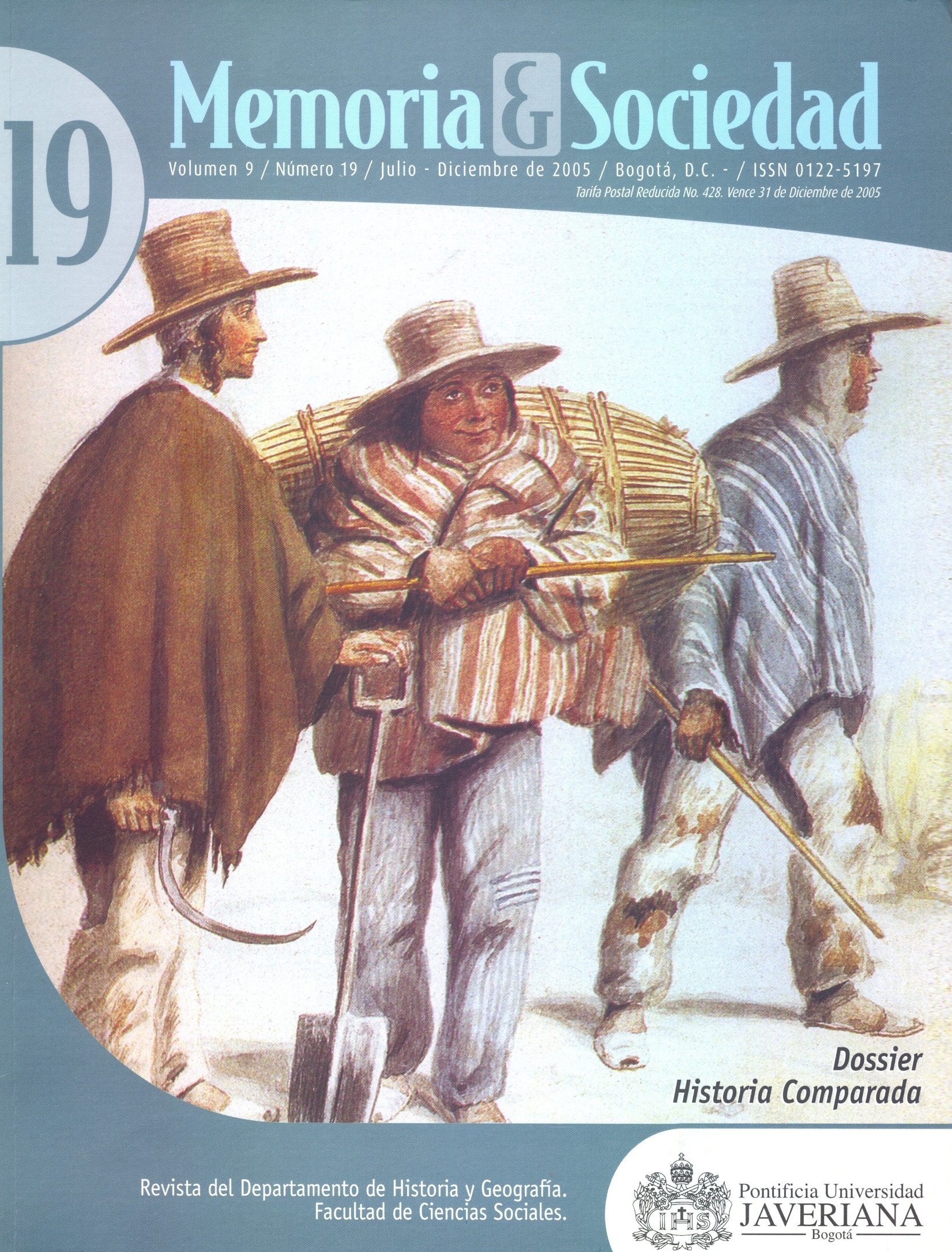Resumen
Este artículo se centra en el análisis del hispanismo como una corriente que en diferentes niveles se articuló con los proyectos de nación en Colombia y México durante el periodo comprendido entre 1886 a 1921. Así mismo, muestra cómo en el caso colombiano dicha articulación logró consolidar un proyecto cultural nacional tradicional y conservador cuyos principales referentes fueron tomados de la tradición hispánica. En contraste, en México, tras el triunfo de la Revolución, la relativa aceptación que el hispanismo había tenido durante el porfiriato fue radicalmente negado para, en su lugar, refundar la nación sobre la base de los valores de uno de los principales actores del proceso revolucionario: el pueblo. La centralidad de la cultura popular y la interpretación que de ella hicieron los intelectuales y artistas patrocinados por el Estado consolidaron un proyecto cultural nacionalista y revolucionario.La revista Memoria y Sociedad se encuentra registrada bajo la licencia Creative Commons Reconocimiento 4.0 Internacional. Por lo tanto, esta obra se puede reproducir, distribuir y comunicar públicamente en formato digital, siempre que se reconozca el nombre de los autores y a la Pontificia Universidad Javeriana. Se permite citar, adaptar, transformar, autoarchivar, republicar y crear a partir del material, para cualquier finalidad (incluso comercial), siempre que se reconozca adecuadamente la autoría, se proporcione un enlace a la obra original y se indique si se han realizado cambios. La Pontificia Universidad Javeriana no retiene los derechos sobre las obras publicadas y los contenidos son responsabilidad exclusiva de los autores, quienes conservan sus derechos morales, intelectuales, de privacidad y publicidad.
El aval sobre la intervención de la obra (revisión, corrección de estilo, traducción, diagramación) y su posterior divulgación se otorga mediante una licencia de uso y no a través de una cesión de derechos, lo que representa que la revista y la Pontificia Universidad Javeriana se eximen de cualquier responsabilidad que se pueda derivar de una mala práctica ética por parte de los autores. En consecuencia de la protección brindada por la licencia de uso, la revista no se encuentra en la obligación de publicar retractaciones o modificar la información ya publicada, a no ser que la errata surja del proceso de gestión editorial. La publicación de contenidos en esta revista no representa regalías para los contribuyentes.


